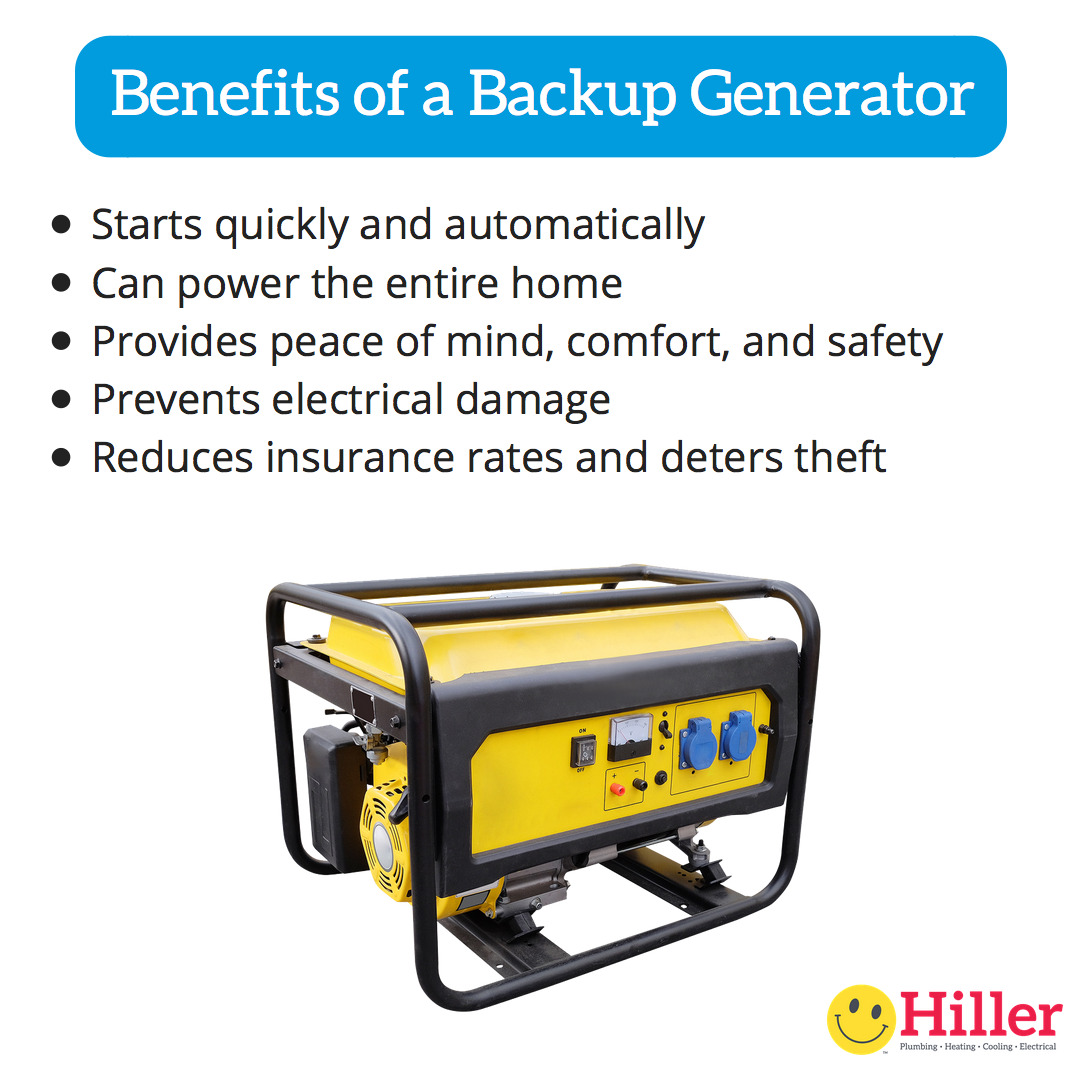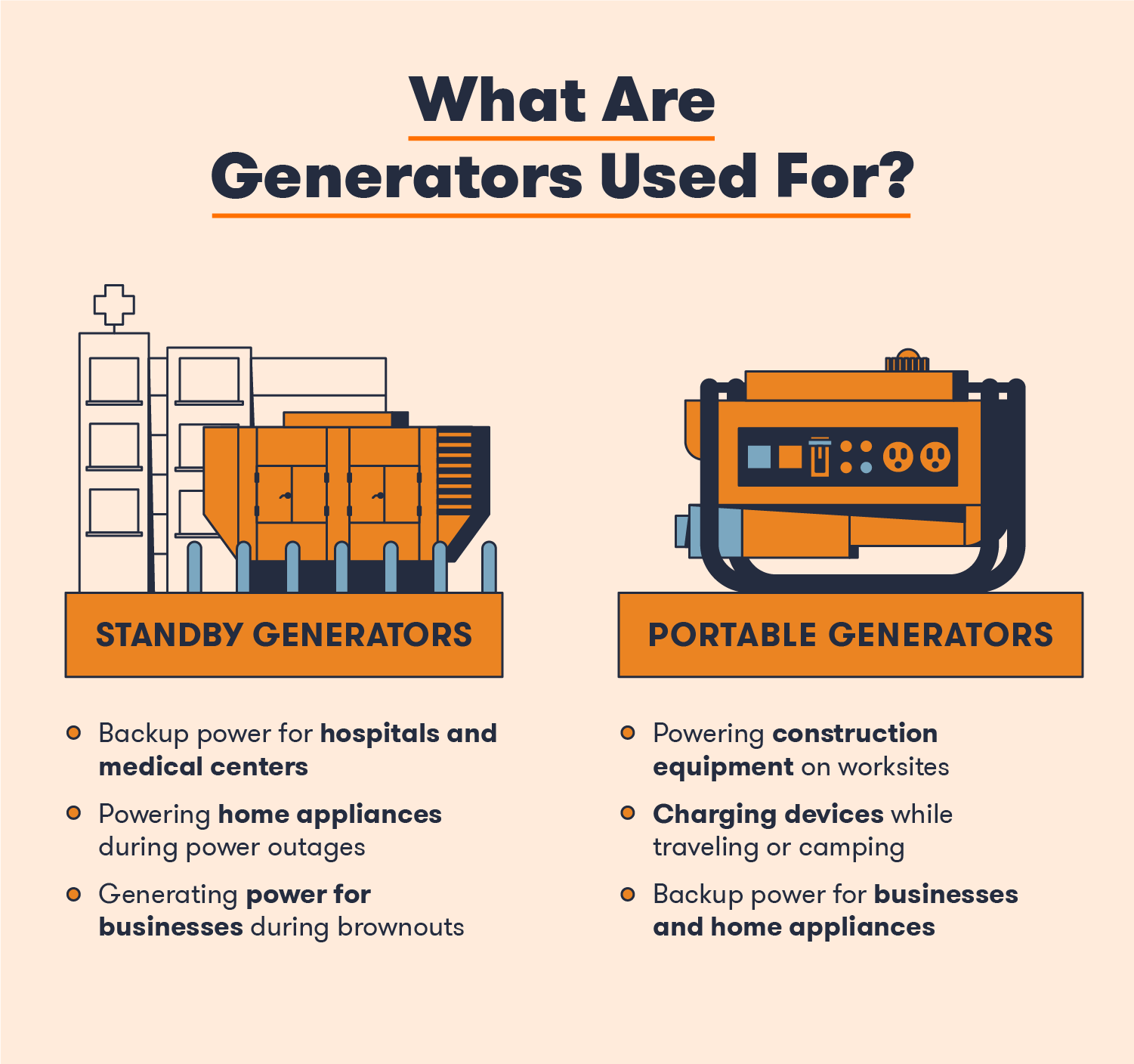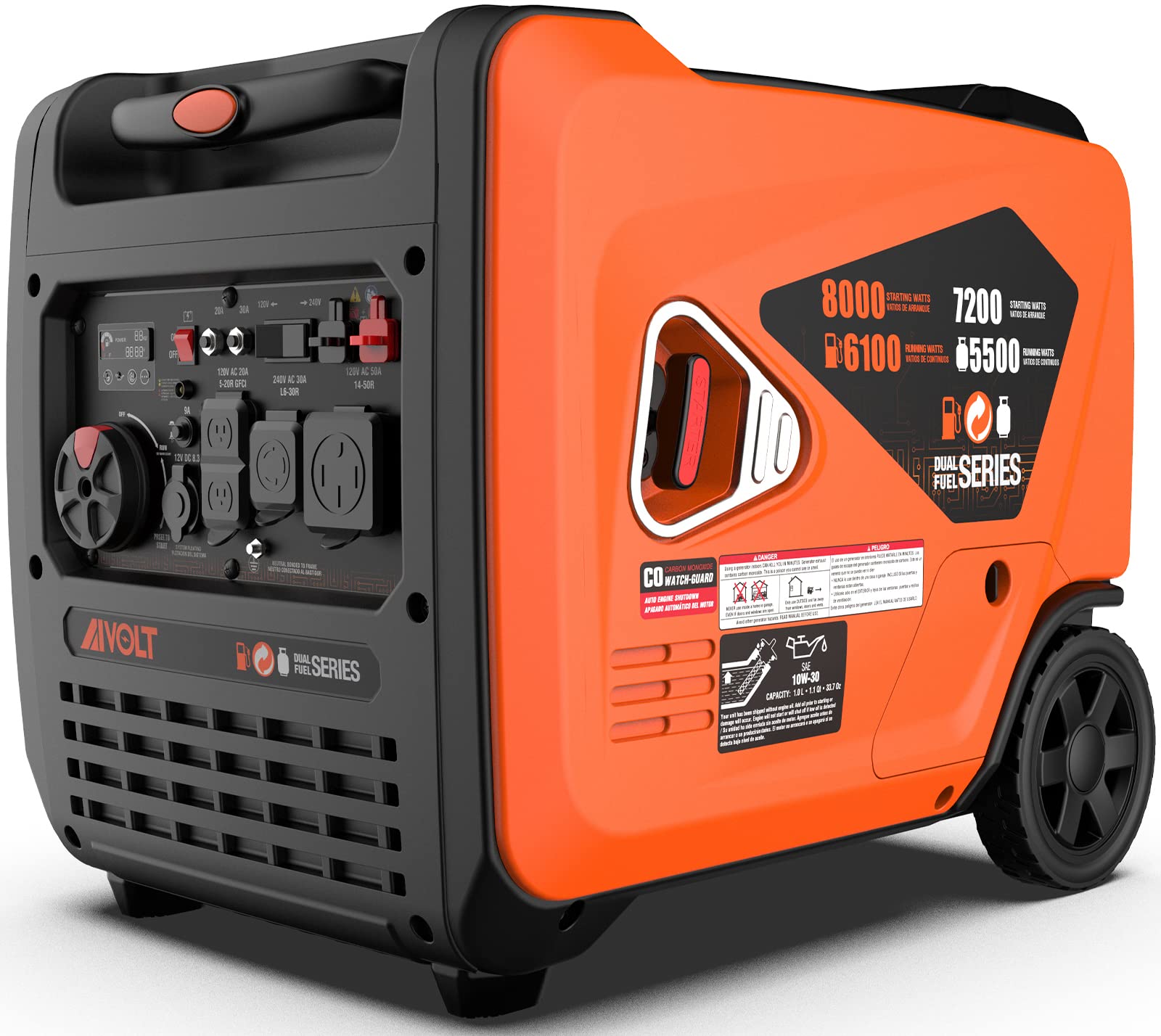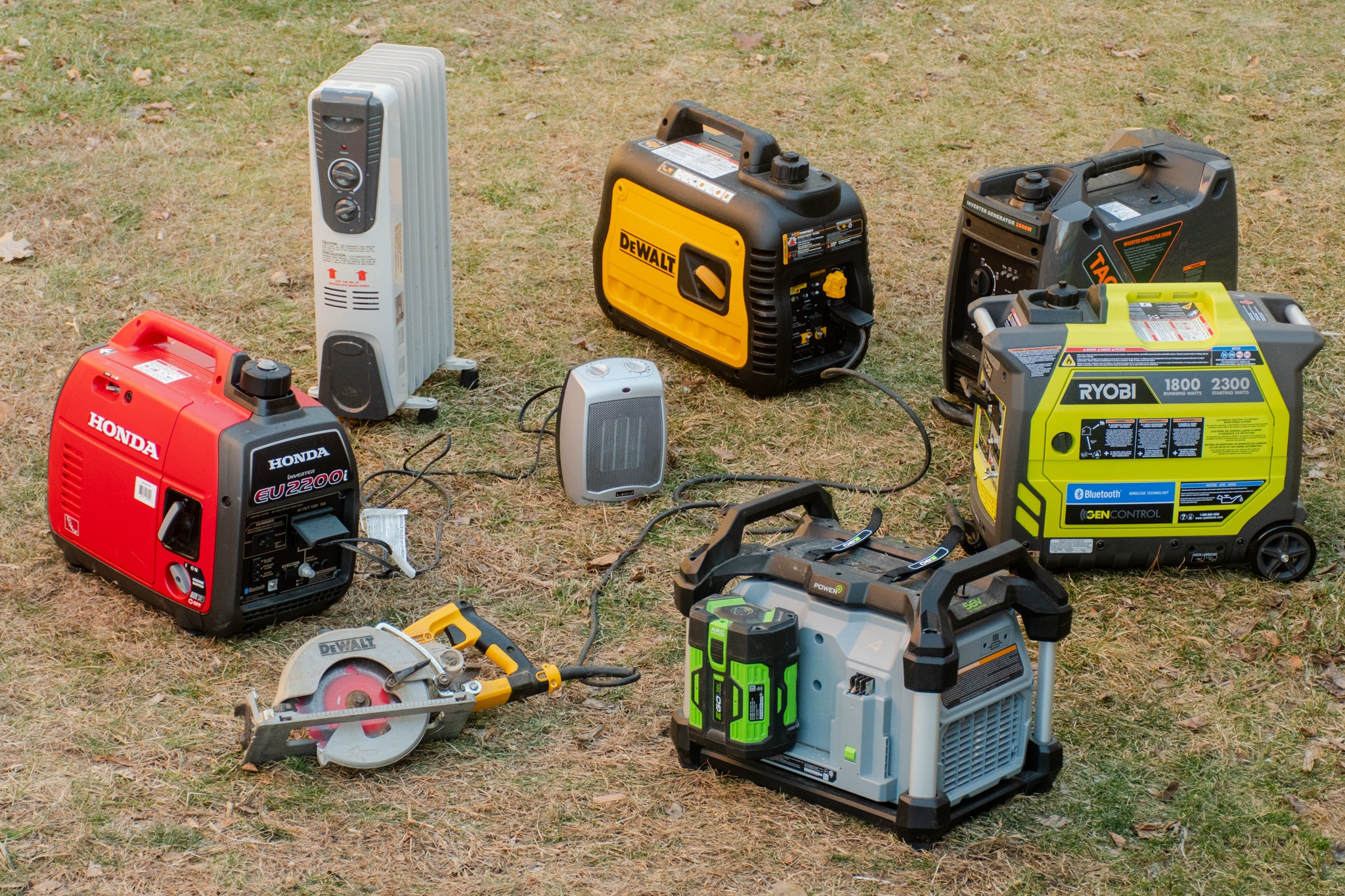Looking for a way to say goodbye to gas and its associated pollution? Consider a generator without gas. This type of generator is powered by alternative energy sources, such as solar energy, wind power, or even battery power. With a generator without gas, you can enjoy the convenience of having a home backup power source without the environmental burden of burning fossil fuels. Read on to learn more about how generator without gas can benefit your home.
Advantages of Generators Without Gas

Generators without gas provide numerous advantages over traditional gas-powered generators. One of the main advantages is their lack of emissions. Generators without gas use alternative power sources such as solar, wind, and hydropower to generate electricity, meaning they produce no greenhouse gas emissions. This is especially beneficial when used in areas where air quality is a concern.
Another advantage of generators without gas is their portability. Many of these generators are lightweight and easy to move, making them ideal for outdoor activities such as camping and tailgating. In addition, they are typically quieter than traditional gas-powered generators, making them an ideal choice for outdoor activities where noise pollution is an issue.
Generators without gas are also very cost-effective. Since they use alternative power sources, they often require little to no maintenance, meaning they are less expensive to own and operate than traditional gas generators. Additionally, they often come with a longer life span than gas-powered models.
Finally, generators without gas are more environmentally friendly than their gas-powered counterparts. Since they use renewable energy sources, they help to reduce our dependence on fossil fuels and reduce our carbon footprint. This makes them an ideal choice for those looking to reduce their environmental impact.
Types of Generators Without Gas

1 Solar Generators
Solar generators are powered by the sun’s rays, providing electricity without the need for gas. Solar generators are typically composed of a solar panel and a storage battery, enabling them to convert and store solar energy even when the sun is not shining.
2 Manual Generators
Manual generators generate electricity through the use of human power. This type of generator is fueled by either a hand crank or a foot pedal, which is then converted into electricity.
3 Wind Generators
Wind generators use the power of the wind to generate electricity. Usually, these generators consist of a wind turbine and a storage battery, which store the energy generated by the wind turbine for later use.
Drawbacks of Generators Without Gas

| Advantage | Disadvantage |
|---|---|
| No Gas Required | Noisy Operation |
| Low Maintenance | Less Power Output |
| Environmentally Friendly | Costly |
| Lightweight and Portable | Emissions |
| No Fuel Storage | Short Lifespan |
Generators without gas are a great alternative to traditional generators that require the use of gasoline or diesel. However, there are some drawbacks to consider when evaluating generator without gas. One of the main drawbacks is the noisy operation. These generators are often louder than their traditional counterparts because they utilize an electric motor to generate power.
Another potential issue with generators without gas is the lower power output. These generators typically produce less power than their traditional counterparts, making them less ideal for larger projects. Additionally, they tend to be more costly than traditional generators, making them an expensive option.
Generators without gas also produce emissions, which can be harmful to the environment. This is an important factor to consider when choosing a generator. Finally, generators without gas tend to have a shorter lifespan than traditional generators, meaning they will need to be replaced more often.
Home Use

Noise Level
Gas generators are known for their loud noise, making them a nuisance to use in residential areas. Generators without gas are much quieter, allowing for use in residential areas without disturbing the peace.
Ease of Use
Generators without gas are typically much easier to use than gas generators. They are usually plug-and-play, meaning all you have to do is plug them in and turn them on. Gas generators require more setup and maintenance.
Cost
Generators without gas are typically more cost-effective than gas generators. They are usually cheaper to purchase and require less maintenance and upkeep over time.
Business Use

Reliability
Generators without gas are typically more reliable than gas generators. They require less maintenance and are less prone to mechanical failure. This makes them ideal for businesses that rely on consistent power.
Portability
Generators without gas are typically much more portable than gas generators. This makes them ideal for businesses that need to move their power source from one location to another.
Environmental Impact
Generators without gas are much more environmentally friendly than gas generators. They produce fewer emissions and are often more energy efficient, making them a better choice for businesses looking for an eco-friendly solution.
3 Camping

- Solar Power: Solar power is the most popular way of powering camping trips. It is easy to set up and requires no additional resources. It is also environmentally friendly and does not produce any emissions.
- Wind Power: Wind power is a great option for camping trips. It is easy to set up and requires no additional resources. It is also environmentally friendly and produces no emissions.
- Hydro Power: Hydro power is a great option for camping trips. It is renewable and efficient and can be used to power lights and other camping equipment. It can also be used to charge batteries.
Cost of Generators Without Gas

| Generator | Price |
|---|---|
| Solar Generator | $500 – $1200 |
| Wind Generator | $1000 – $3000 |
| Hydro Generator | $1000 – $3000 |
| Biomass Generator | $2000 – $5000 |
Generators without gas are becoming increasingly popular due to their environmental and cost-saving benefits. These generators use renewable energy sources such as solar, wind, hydro and biomass to generate electricity, instead of relying on combustible fuels like gasoline or diesel. The cost of these generators depends on the size and type, but generally range from $500 to $5000.
Solar generators are the most affordable and range from $500 to $1200, depending on the wattage. Wind generators are slightly more expensive and range from $1000 to $3000, with larger turbines costing more. Hydro generators are also in this price range and cost between $1000 and $3000. Biomass generators, which use plant or animal waste as fuel, are the most expensive and range from $2000 to $5000.
Maintenance and Care of Generators Without Gas
- Check battery connections regularly.
- Clean the generator case with a damp cloth.
- Inspect the generator’s air filter for any dirt or debris.
- Check the oil level and top up if necessary. Change the oil and filter as recommended by the manufacturer.
- Check the generator’s fuel tank and make sure there are no blockages.
- Check the generator’s spark plug and clean or replace as necessary.
- Check the generator’s cooling system and make sure it is in good condition.
- Check the generator’s safety shut off switch and make sure it is functioning properly.
- Check the generator’s wiring for any loose connections.
- Check the generator’s exhaust system and make sure it is not blocked.
- Make sure the generator is operating in a well-ventilated area.
Safety Considerations
When using a generator without gas, it is important to consider safety first. Make sure to read and follow the manufacturer’s instructions and keep the generator away from combustible materials. Additionally, it is important to use the generator in a well-ventilated area as generators can produce carbon monoxide. It is also important to wear protective equipment when operating the generator, such as gloves, goggles and a face mask. Lastly, it is important to regularly inspect and maintain the generator to ensure it is functioning properly and safely.
Frequently Asked Questions
What is a Generator without Gas?
A generator without gas is an energy source that produces electricity without using gasoline. Generators without gas typically use alternate power sources such as solar, wind, or water to generate electricity. Some generators also use batteries or other stored energy sources to power their devices. These generators can be used for a variety of purposes, from supplying backup power to charging batteries or powering electronics.
How is a Generator without Gas Different from a Regular Generator?
A generator without gas is powered by a renewable energy source such as solar, wind, or water. This type of generator does not require fuel and produces no emissions. Unlike regular generators, these generators are designed to be quieter, more efficient, and more cost-effective in the long run. They also typically require less maintenance and are more environmentally friendly.
What are the benefits of using a generator without gas?
Generators without gas offer numerous advantages over traditional gas-powered generators. These generators are typically much quieter and more efficient, and they don’t require the same amount of maintenance and upkeep. Additionally, they can be used in a variety of different settings, such as indoors and outdoors, and they don’t produce hazardous emissions like traditional gas-powered generators. Furthermore, they are often more affordable and can be used to power a variety of different devices and appliances.
Are there any drawbacks to using a Generator without Gas?
Generators without gas are typically powered by solar panels, water or wind turbines, or a combination of the three. While these are renewable sources of energy, they are not always reliable. Solar panels require regular maintenance and must be exposed to direct sunlight in order to generate electricity. Wind turbines may not generate enough electricity during periods of low wind, and water turbines require a large amount of water pressure to generate electricity. Additionally, these generators can be expensive to install and maintain.
What are some examples of generators that don’t use gas?
Wind turbines: Wind turbines are a type of generator which use the force of the wind to generate electricity. They have three blades which rotate when the wind blows, converting the kinetic energy of the wind into electrical energy.
Solar Panels: Solar Panels are a type of generator which use the energy of the sun to produce electricity. They contain photovoltaic cells which absorb the sunlight and convert it into electricity.
Hydroelectric Power: Hydroelectric power is a type of generator which uses the energy of flowing water to generate electricity. The water is directed through a turbine, which turns a generator to create electricity.
Biomass: Biomass is a type of generator which uses organic material such as wood, crop waste and animal waste to generate electricity. This organic material is burned, which creates heat which is then used to turn a generator and produce electricity.
Conclusion
Generators without gas are a great alternative to traditional gas-powered generators. They provide a clean, renewable energy source for powering electronics and appliances, and are more efficient and cost-effective than their gas-powered counterparts. Additionally, they are safer to use and provide a greater peace of mind with their low risk of fire and emissions. Finally, they are more compact and lightweight, making them easier to transport and store. With all these advantages, generators without gas are a great way to switch from traditional gas-powered generators and say goodbye to gas.






